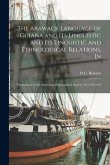J. C. D. Clark, Jonathan Clark
The Language of Liberty 1660 1832
Political Discourse and Social Dynamics in the Anglo-American World, 1660 1832
J. C. D. Clark, Jonathan Clark
The Language of Liberty 1660 1832
Political Discourse and Social Dynamics in the Anglo-American World, 1660 1832
- Broschiertes Buch
- Merkliste
- Auf die Merkliste
- Bewerten Bewerten
- Teilen
- Produkt teilen
- Produkterinnerung
- Produkterinnerung
An important revisionary study which creates a new framework for Anglo-American relations before, during and after the War of Independence.
Andere Kunden interessierten sich auch für
![Central Africans, Atlantic Creoles, and the Foundation of the Americas, 1585-1660 Central Africans, Atlantic Creoles, and the Foundation of the Americas, 1585-1660]() Linda M. HeywoodCentral Africans, Atlantic Creoles, and the Foundation of the Americas, 1585-166028,99 €
Linda M. HeywoodCentral Africans, Atlantic Creoles, and the Foundation of the Americas, 1585-166028,99 €![Meditations From the pen of Mrs. Maria W. Stewart, (widow of the Late James W. Stewart, ) now Matron of the Freedmen's Hospital, and Presented in 1832 Meditations From the pen of Mrs. Maria W. Stewart, (widow of the Late James W. Stewart, ) now Matron of the Freedmen's Hospital, and Presented in 1832]() Maria W. Miller StewartMeditations From the pen of Mrs. Maria W. Stewart, (widow of the Late James W. Stewart, ) now Matron of the Freedmen's Hospital, and Presented in 183217,99 €
Maria W. Miller StewartMeditations From the pen of Mrs. Maria W. Stewart, (widow of the Late James W. Stewart, ) now Matron of the Freedmen's Hospital, and Presented in 183217,99 €![The Rambler in North America: 1832-1833; Volume 1 The Rambler in North America: 1832-1833; Volume 1]() Charles Joseph LatrobeThe Rambler in North America: 1832-1833; Volume 125,99 €
Charles Joseph LatrobeThe Rambler in North America: 1832-1833; Volume 125,99 €![Memoir on the Language of the Gypsies, as Now Used in the Turkish Empire, In: Journal of the American Oriental Society 7:143-270 Memoir on the Language of the Gypsies, as Now Used in the Turkish Empire, In: Journal of the American Oriental Society 7:143-270]() Memoir on the Language of the Gypsies, as Now Used in the Turkish Empire, In: Journal of the American Oriental Society 7:143-27019,99 €
Memoir on the Language of the Gypsies, as Now Used in the Turkish Empire, In: Journal of the American Oriental Society 7:143-27019,99 €![My Sword for Lafayette [microform]: Being the Story of a Great Friendship, and of Certain Episodes in the Wars Waged for Liberty Both in France and Am My Sword for Lafayette [microform]: Being the Story of a Great Friendship, and of Certain Episodes in the Wars Waged for Liberty Both in France and Am]() Max PembertonMy Sword for Lafayette [microform]: Being the Story of a Great Friendship, and of Certain Episodes in the Wars Waged for Liberty Both in France and Am24,99 €
Max PembertonMy Sword for Lafayette [microform]: Being the Story of a Great Friendship, and of Certain Episodes in the Wars Waged for Liberty Both in France and Am24,99 €![The Arawack Language of Guiana and Its Linguistic and Its Linguistic and Ethnological Relations, In: Transaction of the American Philosophical Society The Arawack Language of Guiana and Its Linguistic and Its Linguistic and Ethnological Relations, In: Transaction of the American Philosophical Society]() The Arawack Language of Guiana and Its Linguistic and Its Linguistic and Ethnological Relations, In: Transaction of the American Philosophical Society15,99 €
The Arawack Language of Guiana and Its Linguistic and Its Linguistic and Ethnological Relations, In: Transaction of the American Philosophical Society15,99 €![Words, Phrases, and Short Dialogues, in the Language of the Lenni Lenape, or Delaware Indians. Words, Phrases, and Short Dialogues, in the Language of the Lenni Lenape, or Delaware Indians.]() Words, Phrases, and Short Dialogues, in the Language of the Lenni Lenape, or Delaware Indians.15,99 €
Words, Phrases, and Short Dialogues, in the Language of the Lenni Lenape, or Delaware Indians.15,99 €-
-
-
An important revisionary study which creates a new framework for Anglo-American relations before, during and after the War of Independence.
Hinweis: Dieser Artikel kann nur an eine deutsche Lieferadresse ausgeliefert werden.
Hinweis: Dieser Artikel kann nur an eine deutsche Lieferadresse ausgeliefert werden.
Produktdetails
- Produktdetails
- Verlag: Cambridge University Press
- Seitenzahl: 424
- Erscheinungstermin: 20. Februar 2004
- Englisch
- Abmessung: 229mm x 152mm x 25mm
- Gewicht: 685g
- ISBN-13: 9780521449571
- ISBN-10: 052144957X
- Artikelnr.: 21547303
- Herstellerkennzeichnung
- Libri GmbH
- Europaallee 1
- 36244 Bad Hersfeld
- gpsr@libri.de
- Verlag: Cambridge University Press
- Seitenzahl: 424
- Erscheinungstermin: 20. Februar 2004
- Englisch
- Abmessung: 229mm x 152mm x 25mm
- Gewicht: 685g
- ISBN-13: 9780521449571
- ISBN-10: 052144957X
- Artikelnr.: 21547303
- Herstellerkennzeichnung
- Libri GmbH
- Europaallee 1
- 36244 Bad Hersfeld
- gpsr@libri.de
Introduction: the structure of Anglo-American political discouse; 1. Law,
Religion and Sovereignty; 2. Constitutional Innovations and their English
Antecedents; 3. The genesis of political discourse; 4. Transatlantic ties
and their failure; 5. The Commonwealth paradigm; 6. Denominational
discourse; 7. The implications of theological conflict; 8. Denominational
dynamics and political rebellions; Part I. The Conflict Between Laws:
Sovereignty and State Formation in the Uniter Kingdom and United States: 1.
Law, nationality and nationalism: monarchical allegiance and identity; 2.
The creation of the United Kingdom, 1536-1801: religion and the origins of
the common-law doctrine of sovereignty; 3. Sovereignty and political theory
from Justinian to the English jurists; 4. Natural law versus common law:
the polarisation of a common idiom; 5. Sovereignty, dissent, and the
American rejection of the British state; 6. Sovereignty and the New
Republic: the American constitution in transatlantic perspective; Part II.
The Conflict Between Denominations: The Religious Identity of Early Modern
Societies: 1. Before redefinition: politics and religion in the old
society; 2. Anglicanism as an agency of state formation: the question of
establishment; 3. Canon law, heterodoxy and the American perception of
tyranny; 4. The Anglican ascendancy as the hegemony of discourse; 5. The
Anglican dream: harmony and conflict in the English parish; 6. The Anglican
nightmare: sectarian diversity in colonial America; Part III.
Predispositions: Rebellion and its Social Constituencies in the English
Atlantic Empire, 1660-1800: 1. Rebellions and their analysis in the
Anglo-American tradition; 2. Covenanters, Presbyterians and Whigs:
resistance to the Stuarts in England and Scotland, 1660-1689; 3. Colonial
American rebellions, 1660-1689, and transatlantic discourse; 4. The rights
of Englishmen, the rhetoric of slavery, and rebellions in Britain and
America, 1689-1760; 5. The right of resistance and its sectarian
preconditions in north America, 1760-1799; 6. The rhetoric of resistance
and its social constituencies in England and Ireland, 1733-1828: some
transatlantic analogies; 7. Denominations, social constituencies and their
activation; Part IV. Political Mobilisation: The American Revolution as a
War of Religion: 1. The American Revolution as a civil war; 2.
Predispositions, accelerators and catalysts: the role of theology; 3.
Heterodox and orthodox in the Church of England; 4. The divisions and
disruptions of English dissent; 5. Heterodoxy and rebellion in colonial
America, 1760-1776; Conclusion: 'Desolating Devastation': The Origins of
Anglo-American Divergence.
Religion and Sovereignty; 2. Constitutional Innovations and their English
Antecedents; 3. The genesis of political discourse; 4. Transatlantic ties
and their failure; 5. The Commonwealth paradigm; 6. Denominational
discourse; 7. The implications of theological conflict; 8. Denominational
dynamics and political rebellions; Part I. The Conflict Between Laws:
Sovereignty and State Formation in the Uniter Kingdom and United States: 1.
Law, nationality and nationalism: monarchical allegiance and identity; 2.
The creation of the United Kingdom, 1536-1801: religion and the origins of
the common-law doctrine of sovereignty; 3. Sovereignty and political theory
from Justinian to the English jurists; 4. Natural law versus common law:
the polarisation of a common idiom; 5. Sovereignty, dissent, and the
American rejection of the British state; 6. Sovereignty and the New
Republic: the American constitution in transatlantic perspective; Part II.
The Conflict Between Denominations: The Religious Identity of Early Modern
Societies: 1. Before redefinition: politics and religion in the old
society; 2. Anglicanism as an agency of state formation: the question of
establishment; 3. Canon law, heterodoxy and the American perception of
tyranny; 4. The Anglican ascendancy as the hegemony of discourse; 5. The
Anglican dream: harmony and conflict in the English parish; 6. The Anglican
nightmare: sectarian diversity in colonial America; Part III.
Predispositions: Rebellion and its Social Constituencies in the English
Atlantic Empire, 1660-1800: 1. Rebellions and their analysis in the
Anglo-American tradition; 2. Covenanters, Presbyterians and Whigs:
resistance to the Stuarts in England and Scotland, 1660-1689; 3. Colonial
American rebellions, 1660-1689, and transatlantic discourse; 4. The rights
of Englishmen, the rhetoric of slavery, and rebellions in Britain and
America, 1689-1760; 5. The right of resistance and its sectarian
preconditions in north America, 1760-1799; 6. The rhetoric of resistance
and its social constituencies in England and Ireland, 1733-1828: some
transatlantic analogies; 7. Denominations, social constituencies and their
activation; Part IV. Political Mobilisation: The American Revolution as a
War of Religion: 1. The American Revolution as a civil war; 2.
Predispositions, accelerators and catalysts: the role of theology; 3.
Heterodox and orthodox in the Church of England; 4. The divisions and
disruptions of English dissent; 5. Heterodoxy and rebellion in colonial
America, 1760-1776; Conclusion: 'Desolating Devastation': The Origins of
Anglo-American Divergence.
Introduction: the structure of Anglo-American political discouse; 1. Law,
Religion and Sovereignty; 2. Constitutional Innovations and their English
Antecedents; 3. The genesis of political discourse; 4. Transatlantic ties
and their failure; 5. The Commonwealth paradigm; 6. Denominational
discourse; 7. The implications of theological conflict; 8. Denominational
dynamics and political rebellions; Part I. The Conflict Between Laws:
Sovereignty and State Formation in the Uniter Kingdom and United States: 1.
Law, nationality and nationalism: monarchical allegiance and identity; 2.
The creation of the United Kingdom, 1536-1801: religion and the origins of
the common-law doctrine of sovereignty; 3. Sovereignty and political theory
from Justinian to the English jurists; 4. Natural law versus common law:
the polarisation of a common idiom; 5. Sovereignty, dissent, and the
American rejection of the British state; 6. Sovereignty and the New
Republic: the American constitution in transatlantic perspective; Part II.
The Conflict Between Denominations: The Religious Identity of Early Modern
Societies: 1. Before redefinition: politics and religion in the old
society; 2. Anglicanism as an agency of state formation: the question of
establishment; 3. Canon law, heterodoxy and the American perception of
tyranny; 4. The Anglican ascendancy as the hegemony of discourse; 5. The
Anglican dream: harmony and conflict in the English parish; 6. The Anglican
nightmare: sectarian diversity in colonial America; Part III.
Predispositions: Rebellion and its Social Constituencies in the English
Atlantic Empire, 1660-1800: 1. Rebellions and their analysis in the
Anglo-American tradition; 2. Covenanters, Presbyterians and Whigs:
resistance to the Stuarts in England and Scotland, 1660-1689; 3. Colonial
American rebellions, 1660-1689, and transatlantic discourse; 4. The rights
of Englishmen, the rhetoric of slavery, and rebellions in Britain and
America, 1689-1760; 5. The right of resistance and its sectarian
preconditions in north America, 1760-1799; 6. The rhetoric of resistance
and its social constituencies in England and Ireland, 1733-1828: some
transatlantic analogies; 7. Denominations, social constituencies and their
activation; Part IV. Political Mobilisation: The American Revolution as a
War of Religion: 1. The American Revolution as a civil war; 2.
Predispositions, accelerators and catalysts: the role of theology; 3.
Heterodox and orthodox in the Church of England; 4. The divisions and
disruptions of English dissent; 5. Heterodoxy and rebellion in colonial
America, 1760-1776; Conclusion: 'Desolating Devastation': The Origins of
Anglo-American Divergence.
Religion and Sovereignty; 2. Constitutional Innovations and their English
Antecedents; 3. The genesis of political discourse; 4. Transatlantic ties
and their failure; 5. The Commonwealth paradigm; 6. Denominational
discourse; 7. The implications of theological conflict; 8. Denominational
dynamics and political rebellions; Part I. The Conflict Between Laws:
Sovereignty and State Formation in the Uniter Kingdom and United States: 1.
Law, nationality and nationalism: monarchical allegiance and identity; 2.
The creation of the United Kingdom, 1536-1801: religion and the origins of
the common-law doctrine of sovereignty; 3. Sovereignty and political theory
from Justinian to the English jurists; 4. Natural law versus common law:
the polarisation of a common idiom; 5. Sovereignty, dissent, and the
American rejection of the British state; 6. Sovereignty and the New
Republic: the American constitution in transatlantic perspective; Part II.
The Conflict Between Denominations: The Religious Identity of Early Modern
Societies: 1. Before redefinition: politics and religion in the old
society; 2. Anglicanism as an agency of state formation: the question of
establishment; 3. Canon law, heterodoxy and the American perception of
tyranny; 4. The Anglican ascendancy as the hegemony of discourse; 5. The
Anglican dream: harmony and conflict in the English parish; 6. The Anglican
nightmare: sectarian diversity in colonial America; Part III.
Predispositions: Rebellion and its Social Constituencies in the English
Atlantic Empire, 1660-1800: 1. Rebellions and their analysis in the
Anglo-American tradition; 2. Covenanters, Presbyterians and Whigs:
resistance to the Stuarts in England and Scotland, 1660-1689; 3. Colonial
American rebellions, 1660-1689, and transatlantic discourse; 4. The rights
of Englishmen, the rhetoric of slavery, and rebellions in Britain and
America, 1689-1760; 5. The right of resistance and its sectarian
preconditions in north America, 1760-1799; 6. The rhetoric of resistance
and its social constituencies in England and Ireland, 1733-1828: some
transatlantic analogies; 7. Denominations, social constituencies and their
activation; Part IV. Political Mobilisation: The American Revolution as a
War of Religion: 1. The American Revolution as a civil war; 2.
Predispositions, accelerators and catalysts: the role of theology; 3.
Heterodox and orthodox in the Church of England; 4. The divisions and
disruptions of English dissent; 5. Heterodoxy and rebellion in colonial
America, 1760-1776; Conclusion: 'Desolating Devastation': The Origins of
Anglo-American Divergence.

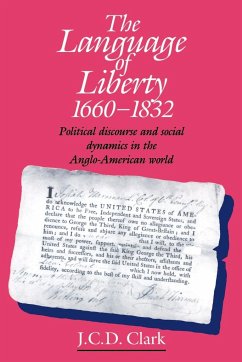
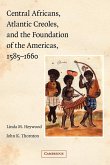
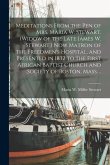
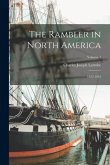
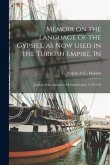
![My Sword for Lafayette [microform]: Being the Story of a Great Friendship, and of Certain Episodes in the Wars Waged for Liberty Both in France and Am My Sword for Lafayette [microform]: Being the Story of a Great Friendship, and of Certain Episodes in the Wars Waged for Liberty Both in France and Am](https://bilder.buecher.de/produkte/66/66163/66163896m.jpg)
